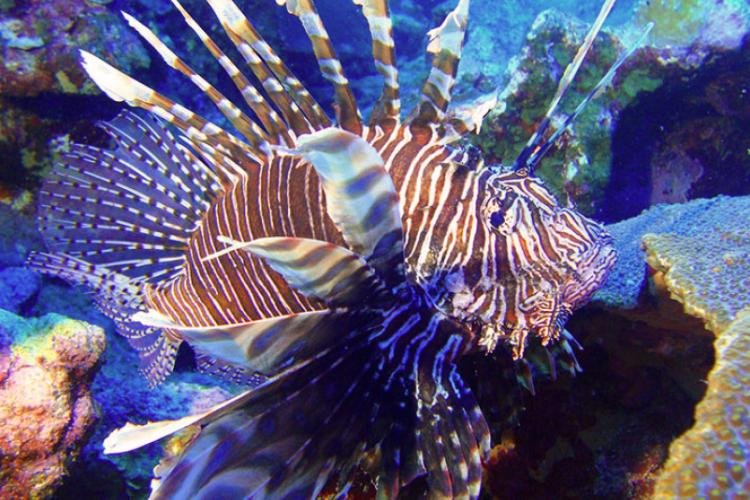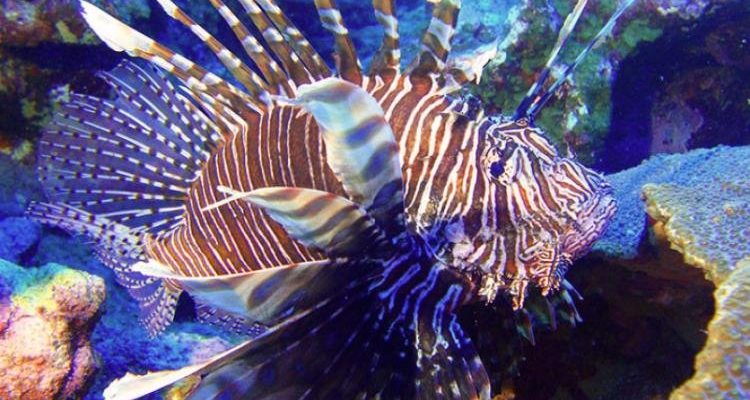
In this article, we’ll explore the most common health problems that lionfish face and, more importantly, how you can prevent these issues. Think of it as a health check-up for your fish friend. Whether you’re a seasoned aquarist or just starting out, it’s essential to know how to support the well-being of these unique fish. So, let’s dive in and learn about the health of lionfish in a way that’s as enjoyable as watching them glide through the water!
Understanding Common Lionfish Health Problems
Lionfish can face a variety of health issues, and understanding these problems can help you take proactive measures. Much like how we might catch a cold or face other ailments, lionfish are susceptible to different diseases and conditions, especially in an aquarium environment.
Some of the most frequent health problems include parasitic infections, swim bladder disorders, and malnutrition. Each issue can stem from factors like water quality, tank mates, and diet. By familiarizing yourself with these problems, you can provide better care and create a more stable environment for your lionfish.
Parasitic Infections
Parasitic infections are among the most common health issues for lionfish. These tiny invaders can disrupt the fish’s overall well-being and lead to serious complications if left untreated. Symptoms might include abnormal swimming patterns, loss of appetite, or visible signs of irritation on their skin.
To prevent parasitic infections, it’s crucial to maintain a clean aquarium. Regular water changes, along with the use of a good filtration system, can help minimize the risk. Quarantining new fish before introducing them to your tank can also help stop any potential health issues from spreading.
Swim Bladder Disorders
Now, let’s talk about swim bladder disorders. The swim bladder is an internal gas-filled organ that helps fish maintain buoyancy. When lionfish experience issues with their swim bladder, they can struggle to control their position in the water. This can make them appear as if they’re swimming sideways or struggling to stay near the bottom of the tank.
The primary causes of swim bladder disorders often relate to poor water conditions or overfeeding. To prevent this, monitor the water parameters closely and feed your lionfish in moderation. In addition, providing a varied diet rich in nutrients can keep their digestive systems healthy and reduce the risk of these problems.
Signs of Stress in Lionfish
Just like any other living creature, lionfish can show signs of stress. These signs can be subtle or quite obvious; knowing what to look for can make a big difference in keeping your fish happy and healthy.
Common indicators of stress include excessive hiding, erratic swimming, and changes in coloration. If your lionfish is spending too much time hiding, it might be feeling threatened by aggressive tank mates or by the environment itself.
To alleviate stress, ensure your aquarium is well-designed with plenty of hiding spots and swimming space. Also, be mindful of the tank’s lighting and water conditions, as fluctuations can add to their anxiety.
Nutrition and Diet Issues
Nutrition plays a pivotal role in the overall health of lionfish. A poor diet can lead to a host of problems, including malnutrition, obesity, and weakened immune systems. In the wild, lionfish thrive on a varied diet of smaller fish and crustaceans. Replicating this diet in captivity is essential for their health.
Provide a balanced mix of frozen or live foods. Some good options include shrimp, silversides, and other meaty offerings. You might be wondering why variety matters so much—it’s simple: just like us, lionfish need a range of nutrients that come from different food sources to stay healthy.
Supplementing Diet with Vitamins
To further enhance their health, consider adding vitamin supplements to their diet. These can help boost their immune system, particularly if they’re recovering from illness or dealing with stress. Just sprinkle a bit onto their food occasionally, and you could see a noticeable difference in their vitality.
Water Quality: The Foundation of Health
Water quality is crucial for the well-being of lionfish. Poor water conditions can lead to all sorts of health problems, including stress, disease, and decreased appetite. You might think of water quality like a lionfish’s home; if it’s dirty and polluted, they’re not going to feel comfortable or thrive.
Regular water testing should become a routine part of tank maintenance. Keep an eye on parameters like pH, ammonia, nitrite, and nitrate levels. Ideally, the pH should be between 7.8 and 8.4, and ammonia and nitrite levels should be at zero. If you detect any irregularities, take action immediately—this might mean performing a water change or adjusting filters.
Filtration Systems
A good filtration system is a must-have. It keeps the tank clean and helps maintain stable water conditions. Depending on the size of your aquarium, consider investing in a high-quality filter that’s designed for saltwater tanks. This is like giving your lionfish a reliable source of fresh air in their underwater world.
Managing Tank Mates: Compatibility Matters
Choosing the right tank mates is just as important as water quality and diet. Lionfish, with their spiky fins and predatory nature, can be quite territorial and aggressive. If they’re placed with the wrong tank mates, it can lead to stress and injury.
Aim to house lionfish with larger, non-aggressive species. Smaller fish might not fare well and could end up being prey. A peaceful community with compatible tank mates can create a more harmonious environment.
Signs of Tank Mate Conflict
Watch for signs of distress, like chasing or hiding. If your lionfish is frequently cornering other fish or showing signs of aggression, it might be time to reevaluate the tank’s inhabitants. This will help you maintain peace in the aquarium and ensure a healthy environment for everyone.
Regular Health Checks and Monitoring
Just like a routine health check-up for people, regular monitoring of your lionfish is key to identifying problems before they escalate. Pay attention to their eating habits, swimming behavior, and physical appearance. Are they vibrant and active? Or are there any signs of discoloration, bloating, or lesions?
Performing thorough health assessments regularly will help you catch potential problems early. If something seems off, consult an aquatic veterinarian or do some research for further insights. It’s all about being proactive and staying informed.
In conclusion, the health of your lionfish is a multi-faceted topic that requires attention to various factors including diet, water quality, and tank mates. By being aware of the common health problems and implementing preventive measures, you can create a thriving environment for your fish friend.
Remember, a little effort goes a long way in keeping your lionfish happy and healthy. By maintaining a clean tank, providing a nutritious diet, and ensuring compatible tank mates, you’re setting the stage for a vibrant aquatic life. Take pride in being an informed fish keeper—it really makes a difference!

